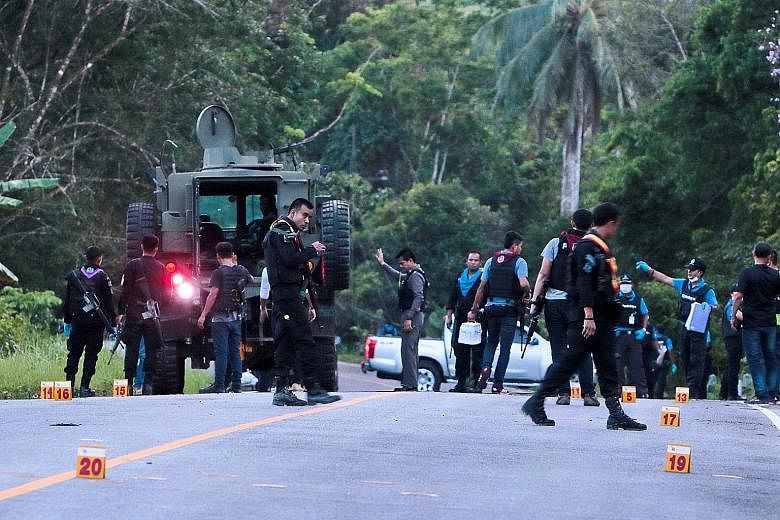The armed conflict in the Philippines' Marawi city should serve as a wake-up call to the Thai authorities in addressing the insurgency in southern Thailand, analysts say, as the tensions could open the door for the ISIS terror group, which often exploits conflicts involving Muslims.
Last week, Thailand started deploying 24-hour patrols in Narathiwat and Yala provinces bordering Malaysia, following news of the capture of an ISIS cell involving Malaysian militants who smuggled weapons across the border.
Still, the Thai government is confident that it would be difficult for Islamic State in Iraq and Syria (ISIS) militants to take root in the Malay-Muslim-dominated south, owing to differences in ideology and lack of ground support.
Analysts say the Barisan Revolusi Nasional (BRN), a major Muslim insurgent group in the south, has also made it clear that ISIS is not welcome.
"Across the region, the ground is shifting rapidly and Bangkok can no longer afford the luxury of assuming the conflict will remain somehow insulated from these wider currents, or that stepped- up border patrols will solve the problem," Mr Anthony Davis, a Bangkok-based security analyst, told The Straits Times.
"Clearly, ISIS has interest in exploiting areas of conflict which involve Muslims and south Thailand represents an area of opportunity."
South-east Asian nations were jolted in recent weeks when Philippine-based militants from the Maute group, which has pledged allegiance to ISIS, managed to capture Marawi city.
But in Thailand, the government remains confident that it would be difficult for ISIS to succeed in the deep south without support from the local Malay-Muslim community. The long-running insurgency has claimed over 6,000 lives since 2004.
"While ISIS is an imminent threat in the region, the south Thailand insurgency has been largely a domestic issue," said Colonel Pramote Prom-in, a spokesman for the Fourth Army Region's Internal Security Operations Command. He said the insurgents, who are fighting for a level of autonomy from Thailand, have a different ideology from ISIS, which follows an extremist interpretation of Islam.
Prime Minister Prayut Chan-o-cha said last month that the Thai authorities have found no information suggesting that ISIS members are hiding in southern Thailand or were involved in recent attacks in the region.
"(BRN and ISIS) do not share the same ideology and BRN has made it very clear that ISIS is not welcome," said Mr Don Pathan, an analyst who writes about southern Thailand issues.
Mr Matthew Wheeler, a senior analyst for South-east Asia at the Belgium-based International Crisis Group, said BRN sees its struggle as "nationalist and anti-colonial".
"Subordinating their struggle to a forlorn agenda imposed by outsiders would be counter-productive, if not suicidal," he added.
In Thailand, too, latching onto Thai insurgent groups could be tough as they mostly work in the shadows, with little public knowledge of who controls them.
Still, analysts said terror threats remain even if Thailand is used by ISIS fighters only as a place to hide or to acquire fraudulent travel documents.
It is also a place where military weapons routinely turn up on the streets. Several Thai army officers were charged yesterday over a weapons market that saw soldiers selling grenades and bullets over social media, Agence France- Presse reported.

